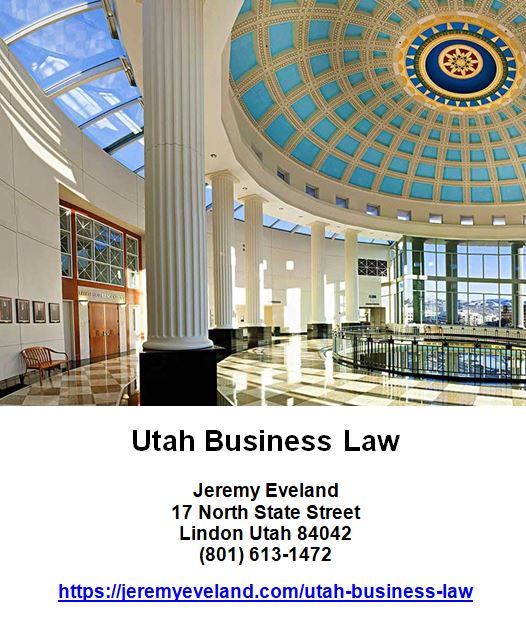If you find yourself in a situation where you need to file a restraining order in Utah, you’ve come to the right place. Our goal is to provide you with all the information you need to understand the process and take the necessary steps to protect yourself or your loved ones. From explaining the different types of restraining orders available to discussing how to obtain one, we’ll guide you through it all. Our experienced attorneys are here to offer reassurance, guidance, and legal assistance every step of the way. Don’t hesitate to reach out to us for further information.
Overview of Restraining Orders

Definition of a restraining order
A restraining order, also known as a protection order, is a legal document issued by a court that orders someone to stay away from another person. It is designed to protect individuals who have been victims of harassment, stalking, domestic violence, or any other form of threatening behavior. Restraining orders can be obtained by filing a petition with the court and, if approved, legally require the person named in the order to maintain a certain distance and refrain from any contact with the protected person.
Purpose and types of restraining orders
The purpose of a restraining order is to provide a legal safeguard and create a safe environment for individuals who feel threatened by someone else’s actions. There are different types of restraining orders, each tailored to address specific circumstances. Some common types include:
-
Domestic Violence Restraining Orders: These are specifically aimed at protecting victims of domestic violence, including spouses, family members, or anyone who has a close relationship with the abuser.
-
Stalking and Harassment Restraining Orders: These are intended to protect individuals who are being stalked or harassed, whether by strangers, acquaintances, or former partners.
-
Workplace Restraining Orders: In certain cases, individuals may seek a restraining order to protect themselves from a coworker or someone from their workplace.
-
Civil Harassment Restraining Orders: These orders offer protection for those who are being harassed outside of a domestic or workplace context, such as neighbors, roommates, or acquaintances.
Eligibility for Restraining Orders
Who can apply for a restraining order
In most jurisdictions, anyone who believes they are at risk of harm or has been a victim of harassment, stalking, or violence may apply for a restraining order. The person seeking the order, often referred to as the petitioner, must demonstrate to the court that they have reasonable grounds to fear for their safety or well-being.
Conditions for obtaining a restraining order
To obtain a restraining order, the petitioner usually needs to provide evidence that shows they have been a victim of harassment, stalking, or violence. This evidence can include witness statements, photographs, text messages, or any other relevant documentation. The court will evaluate this evidence and determine if sufficient grounds exist to grant the order.
Process of Obtaining a Restraining Order
Step 1: Filing the restraining order
The first step in obtaining a restraining order is to file a petition with the court. This petition outlines the reasons for seeking the order and provides any supporting evidence. It is important to provide as much detail as possible and include any specific incidents that have occurred. The court will review the petition and determine if it meets the criteria for issuing a restraining order.
Step 2: Court hearing and evidence
After the petition is filed, a court hearing will be scheduled. At the hearing, the petitioner will have the opportunity to present their case to the judge. It is crucial to bring any relevant evidence and witnesses to support the allegations made in the petition. The respondent, the person against whom the order is sought, will also have a chance to present their side of the story.

Step 3: Serving the restraining order
If the court grants the restraining order, it is essential to have the order served to the respondent. This is usually done by a law enforcement officer or a professional process server. Once served, the respondent is legally obligated to comply with the terms of the restraining order.
Duration and Terms of a Restraining Order
Temporary restraining order (TRO)
A temporary restraining order, or TRO, is an initial order issued by the court to provide immediate protection to the petitioner until a hearing for a final restraining order can be held. It often lasts for a short period, typically around two weeks, but can be extended if necessary. During this time, the respondent is required to stay away from the petitioner and refrain from any contact or harassment.
Final restraining order (FRO)
If the court determines that the petitioner’s allegations are valid and that ongoing protection is necessary, a final restraining order, or FRO, may be issued. An FRO can last for a specified period, often several years, or even permanently, depending on the circumstances surrounding the case.
Terms and conditions of restraining orders
The specific terms and conditions of a restraining order may vary depending on the nature of the case and the judge’s discretion. However, common provisions typically include maintaining a certain distance from the protected person, refraining from any contact or communication, not entering specified locations, and surrendering any firearms or weapons in the respondent’s possession.
Violations and Penalties
Consequences of violating a restraining order
Violating a restraining order is a serious offense and can have severe consequences. If the respondent disregards the terms of the order, they may face immediate legal repercussions, such as fines, incarceration, or both. Additionally, repeat violations can result in more severe penalties, including felony charges.
Legal repercussions of violations
Once a violation of a restraining order has been reported, the court can take appropriate action to enforce the order and protect the petitioner. The court may issue additional orders, such as arrest warrants or modified restraining orders with stricter provisions. The respondent may also be subject to criminal charges, which can result in a criminal record and potentially impact future employment, housing, and other aspects of their life.
Modifying or Terminating a Restraining Order

Circumstances for modifying or terminating a restraining order
In some cases, the circumstances that led to the issuance of a restraining order may change over time. If the petitioner wishes to modify or terminate the order, they can file a request with the court, explaining the reasons for the requested changes. The court will then evaluate the request and consider any new evidence or circumstances before making a decision.
Process for modifying or terminating a restraining order
To modify or terminate a restraining order, the petitioner must file a motion with the court and provide a compelling reason for the requested modification. Both the petitioner and respondent will have the opportunity to present their arguments and evidence before the court makes a final decision.
Domestic Violence Restraining Orders
Definition and purpose of domestic violence restraining orders
Domestic violence restraining orders provide protection for individuals who have been subjected to violence or abuse in a domestic setting. They are specifically designed to safeguard victims of abuse from their current or former spouses, family members, or individuals with whom they have a close relationship.
Conditions for obtaining a domestic violence restraining order
To obtain a domestic violence restraining order, the petitioner must demonstrate to the court that they have been a victim of domestic violence. This can include physical abuse, threats, harassment, stalking, or any other harmful behavior inflicted by a family or household member. The court will carefully evaluate the evidence presented and decide whether to grant the order.
Steps to take if you are a victim of domestic violence
If you are a victim of domestic violence, it is crucial to prioritize your safety and seek assistance promptly. Here are some steps you can take:
- Reach out to a trusted friend, family member, or domestic violence hotline for support and guidance.
- Document any evidence of abuse, such as photographs of injuries, threatening messages, or medical records.
- Contact local law enforcement to report the abuse and request a restraining order.
- Seek legal counsel to help you navigate the legal process and ensure your rights are protected.
Stalking and Harassment Restraining Orders
Definition and purpose of stalking and harassment restraining orders
Stalking and harassment restraining orders are intended to protect individuals who are being targeted by persistent and unwelcome attention from someone else. These orders aim to prevent further stalking or harassment and maintain a safe distance between the victim and the perpetrator.
Conditions for obtaining a stalking and harassment restraining order
To obtain a stalking and harassment restraining order, the petitioner must provide evidence that they have been subject to unwanted attention, persistent following, or any other form of harassment that has caused them fear or distress. It is important to document the incidents and any communication received from the harasser.
Steps to take if you are a victim of stalking or harassment
If you are a victim of stalking or harassment, it is crucial to take immediate action to protect yourself. Here are some steps you can take:
- Inform friends, family, and neighbors about the situation and ask for their support and vigilance.
- Keep a record of all incidents, including dates, times, locations, descriptions of the events, and any witnesses present.
- Collect any evidence of the stalking or harassment, such as messages, emails, or voicemails.
- Contact local law enforcement and provide them with the evidence you have gathered.
- Seek legal advice to explore the possibility of obtaining a stalking and harassment restraining order.
Restraining Orders and Child Custody
Impact of restraining orders on child custody
When a restraining order is involved in a child custody case, it can significantly impact the court’s decision. The court’s foremost concern is the safety and well-being of the child, and any evidence of domestic violence or risk to the child’s welfare may influence custody arrangements. If a restraining order is in place, it may restrict or prohibit contact between the offending parent and the child.
Considerations for parents involved in custody disputes
If you are a parent involved in a custody dispute and there is a restraining order in place or you believe there is a need for one, it is essential to consider the following:
- Gather evidence to support your case, such as police reports, witness statements, or medical records related to domestic violence incidents.
- Consult with an experienced family law attorney who can guide you through the legal process and advocate for your parental rights.
- Follow the terms of the restraining order and avoid any behavior that may be perceived as a violation.
- Maintain open and honest communication with your attorney, providing them with any relevant updates or concerns that may arise.
Frequently Asked Questions
What evidence do I need to obtain a restraining order?
To obtain a restraining order, you typically need to provide evidence that demonstrates you have been a victim of harassment, stalking, or violence. This can include witness statements, photographs, text messages, or any other relevant documentation that supports your claims.
How long does a restraining order last?
The duration of a restraining order can vary depending on the specific circumstances of the case and the judge’s decision. Temporary restraining orders (TROs) typically last for a short period, while final restraining orders (FROs) can last for several years or even permanently.
Can I request a restraining order against a co-worker?
In certain cases, you may be able to request a restraining order against a co-worker if they have exhibited threatening or violent behavior towards you. It is important to consult with an attorney to understand the specific laws and requirements in your jurisdiction.













